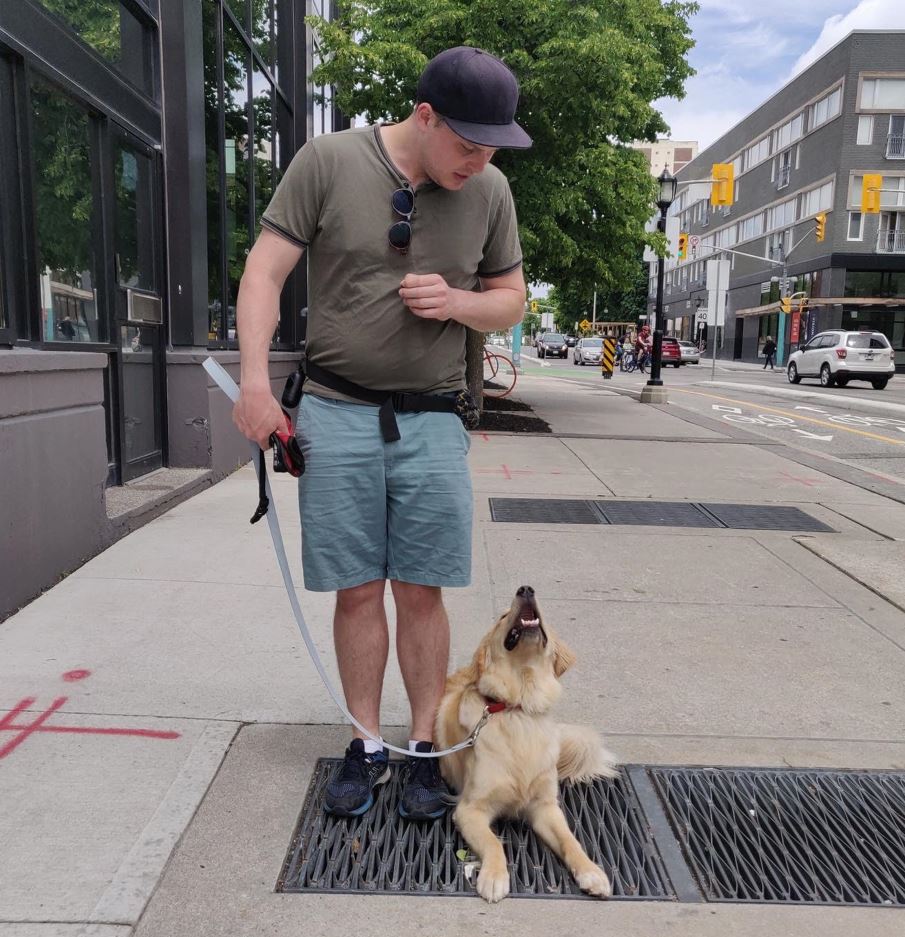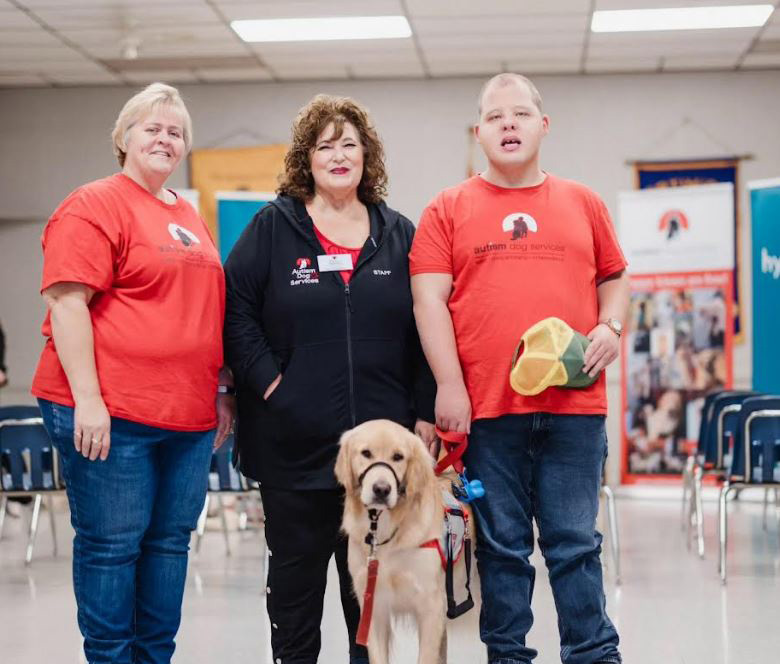Vicky Spadoni and her team’s vital work has been noted in the last couple of years throughout the media, yet volunteers and funding are crucial for the long-term success of Autism Dog Services.
Spadoni, who has been leading the organization for over six years as the Executive Director, has been adamant about reaching out to the community for help.
“We have been around since 2007 and we train dogs to support children and youth with developmental disorders such as Autism, Fetal alcohol syndrome, Rett syndrome, and Down syndrome. We support children from the age of three right up to youth being 18. [However] all the other autism dogs service training schools generally stop around 10 or 12 years of age,” said Spadoni. “And then we have a companion dog program, and that’s basically for anyone in Ontario that has a special need of some sort. These dogs are not service dogs. It’s a career-changed dog; meaning that the dog doesn’t come with any public access training but is highly trained and can certainly support a person in their home.”
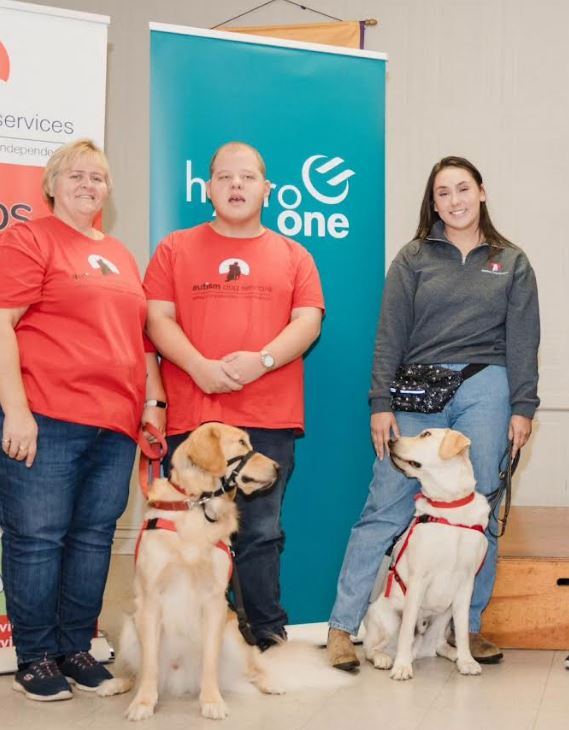
Spadoni, who has dedicated much of her career to working at several charitable organizations as well as co-founding a national charity called MitoCanada which supports Canadians diagnosed with Mitochondrial Disease, noted how these trained dogs can also be key members of organizations.
“As well, we have a facility dog program where we place dogs with facilities in need. Currently, we have two dogs placed with the Haldimand County community paramedics program. Our dogs are now canine medics who go into patients’ homes [and] provide comfort, companionship, and decompression while the paramedics do their jobs,” she said. “We [also] had a facility dog placed with Niagara police services for the police and wellness program. Our dog would support police and 911 communicators through some tragic and traumatizing times; allowing them to decompress. And we also have partnerships with some of our dogs that don’t make it as service dogs like with the Canadian Border Services.”
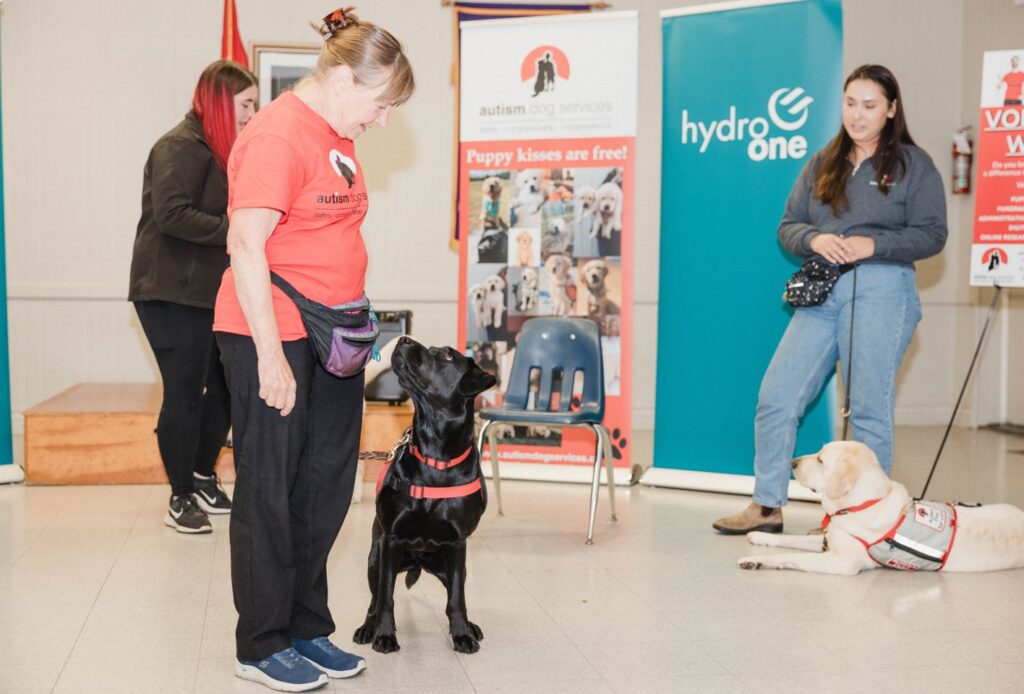
Although Autism Dog Services has been gaining strong support from the Brantford community, Spadoni has continued to try and recruit more volunteers in order to keep up with the high demand for these service dogs.
“We are now actively recruiting for volunteer puppy raisers for our program. 80% of our operations are through volunteers and puppy raisers. We also have volunteer puppy sitters, who don’t want to do long-term puppy raising but will help out short term for weekends at a time or for a week or two,” continued Spadoni. “We provide all the training and training equipment for our volunteers to take the puppies out in public with the main goal of socializing the dog and doing basic obedience training. We lead these daytime puppy training classes and operate those out of the Yes Church.”
Along with leading these training programs, Spadoni and her team have led various community events to bring exposure to Autism Dog Services.
“We had our first annual Howl-O-Ween Pawty that we held here in Branford and it was a great success. We will be doing that again in 2024. As well, we’re looking at other opportunities for fundraising events [with] different themes, [during] different times of the year…we do not receive any government funding and just to place one dog is between $25,000 to $30,000, so we have to put ourselves out there [and] bring in the donor dollars in order to support the kids who are on our waitlist,” she said.
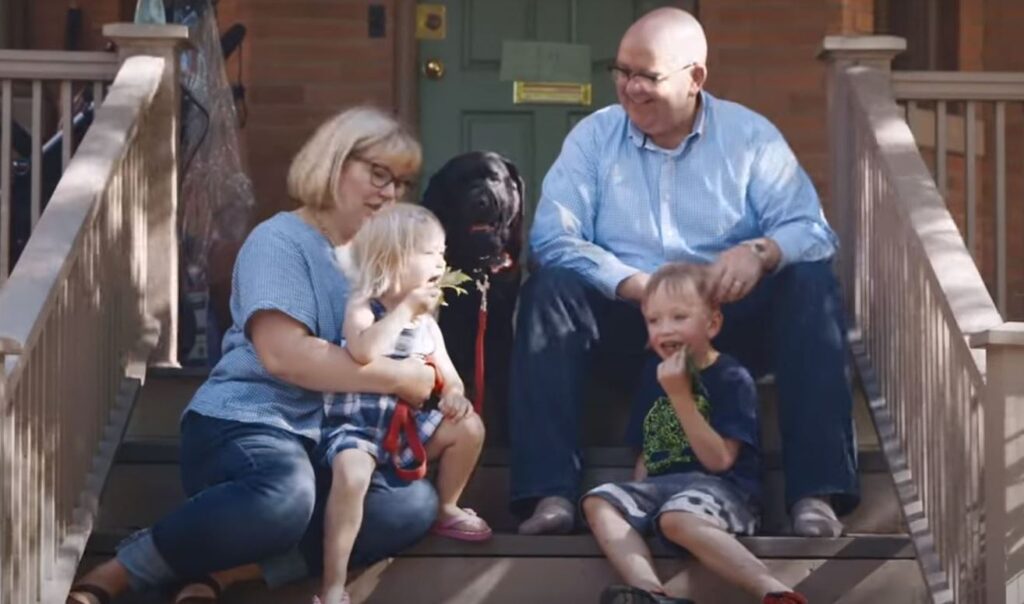
However, despite the high costs and extensive work in training these dogs, Spadoni noted the growing number of transformative stories that are reflective of the work the Autism Dog Services team does. Spadoni recounted one particular testimonial that really resonated with her.
“One that sticks out in my mind is when we placed the dog with a nine-year-old girl and her family. She was nonverbal. Her parents had never heard the words, ‘Mama’ or ‘Daddy.’ She made sounds, but none of her sounds were able to be comprehended,” Spadoni said. “About three hours after we left this young girl’s home…the mother called me hysterically [and told me] her daughter started talking in sentences! Her first words were ‘come doggy,’ ‘come now.’ After nine years of not being able to verbalize, the parents heard their daughter’s first words ever. And then it only got better from there. So, these dogs can change lives [and] provide [a high] quality of life for the kids and their whole families.”
Nevertheless, Spadoni and her team continue to build efforts to educate the public with specialized outreach presentations as well as sharing information and stories via social media.
“We are very active on social media including on Facebook, Instagram, and Twitter (now X), [and we participate and] send out requests for presentations to corporations, service clubs, educational school boards, and schools….this [outreach] provides public education on what to do if you encounter a service dog, and at the same time that allows us to highlight Autism Dog Services specifically,” concluded Spadoni.
